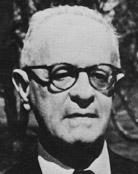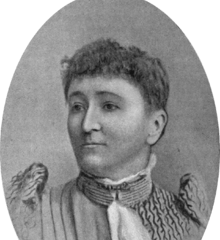Oliver Goldsmith Quotes - Page 13
That virtue which requires to be ever guarded is scarce worth the sentinel.
'The Vicar of Wakefield' (1766) ch. 5
Oliver Goldsmith (1837). “The Miscellaneous Works of Oliver Goldsmith, M. B.: Including a Variety of Pieces”, p.88
And e'en while fashion's brightest arts decoy, The heart distrusting asks if this be joy.
1770 The Deserted Village, l.263-4.
To me more dear, congenial to my heart, One native charm, than all the gloss of art.
Oliver Goldsmith, Walter MACLEOD (of the Royal Military Asylum, Chelsea.) (1858). “Goldsmith's Deserted village, with remarks on the analysis of sentences, exercises in parsing, notes ... and a life of the poet ... By Walter M'Leod”, p.71
Oliver Goldsmith (1845). “The Vicar of Wakefield: A Tale”, p.96
Oliver Goldsmith, David Masson (1869). “The Miscellaneous Works of Oliver Goldsmith”, p.391
'The Deserted Village' (1770) l. 1
A book may be very amusing with numerous errors, or it may be very dull without a single absurdity.
Oliver Goldsmith (1806). “The Vicar of Wakefield”, p.13
Oliver Goldsmith (1816). “The Miscellaneous Works of Oliver Goldsmith, M.B.: With Memoirs of His Life and Writings : Enriched with an Elegant Portrait of the Author”, p.258
Oliver Goldsmith, Henry George Bohn (1848). “Works: With a Life and Notes”, p.218
'The Vicar of Wakefield' (1766) ch. 1
Oliver Goldsmith (1816). “The Vicar of Wakefield”, p.10
Death when unmasked shows us a friendly face and is a terror only at a distance.
Oliver Goldsmith, David Masson (1869). “The Miscellaneous Works of Oliver Goldsmith”, p.693
Oliver Goldsmith (1871). “The works of Oliver Goldsmith: Vicar of Wakefield, select poems and comedies, with intr., notes and a life by J.F. Waller”, p.199
"Hoyt's New Cyclopedia Of Practical Quotations" by Jehiel Keeler Hoyt, p. 686-88, The Bee, No, IV. A City Night-Piece, 1922.
Oliver Goldsmith (1830). “The vicar of Wakefield, etc. (University edition.)”, p.217
Oliver Goldsmith (1837). “The Miscellaneous Works of Oliver Goldsmith, M. B.: Including a Variety of Pieces”, p.432
Oliver Goldsmith (1850). “Goldsmith's Vicar of Wakefield, Citizen of the world, Poetical works, etc”, p.111
Oliver Goldsmith (1854). “The Works of Oliver Goldsmith”, p.342
Oliver Goldsmith (1833). “Miscellaneous Works of Oliver Goldsmith: With a New Life of the Author”, p.178
So the loud torrent, and the whirlwind's roar, But bind him to his native mountains more.
Oliver Goldsmith (1851). “The Traveller”, p.7







